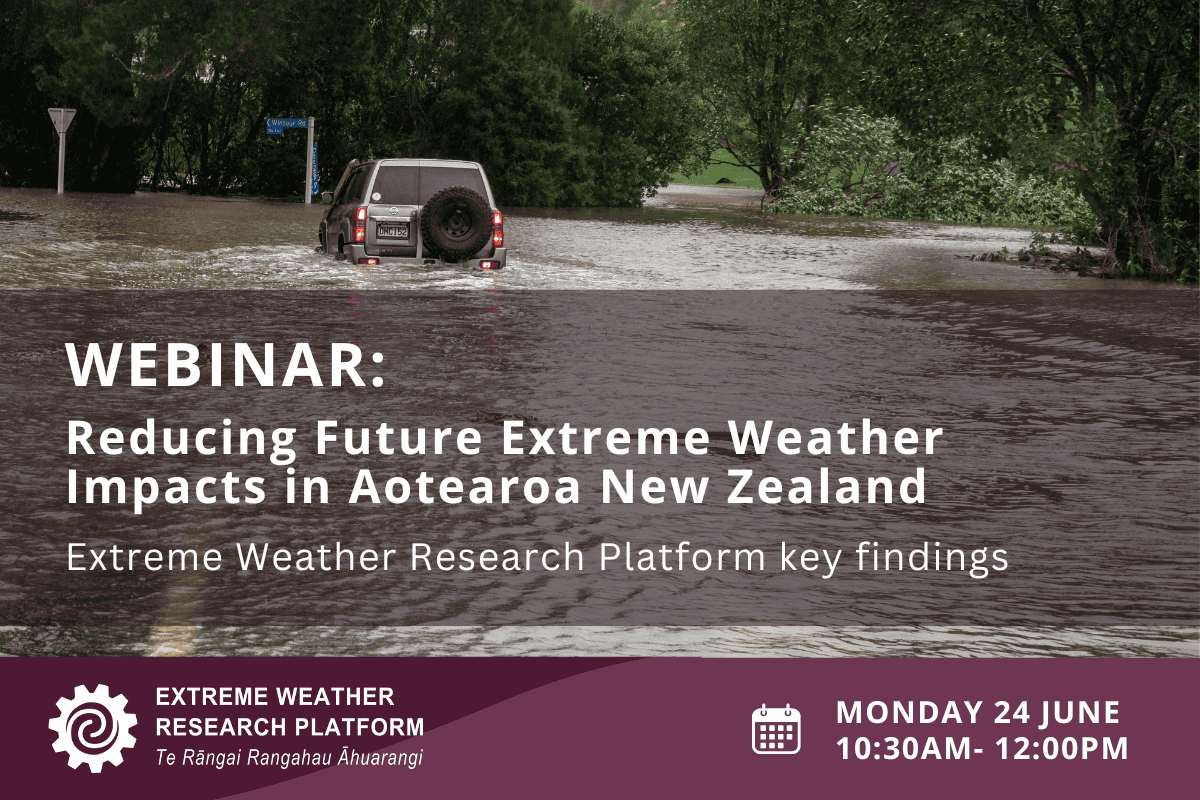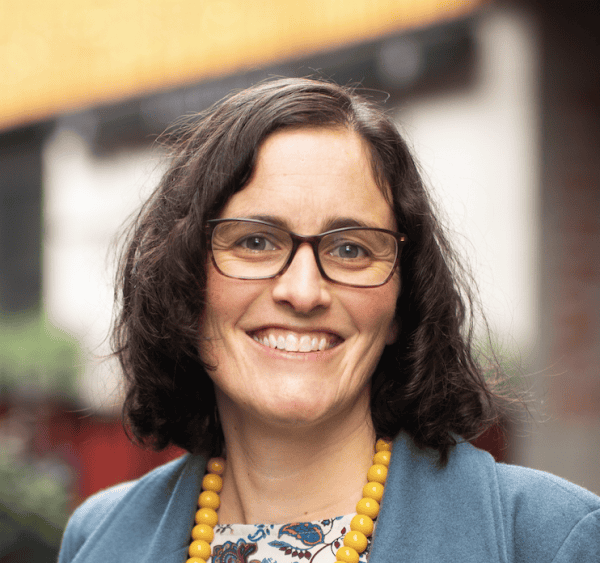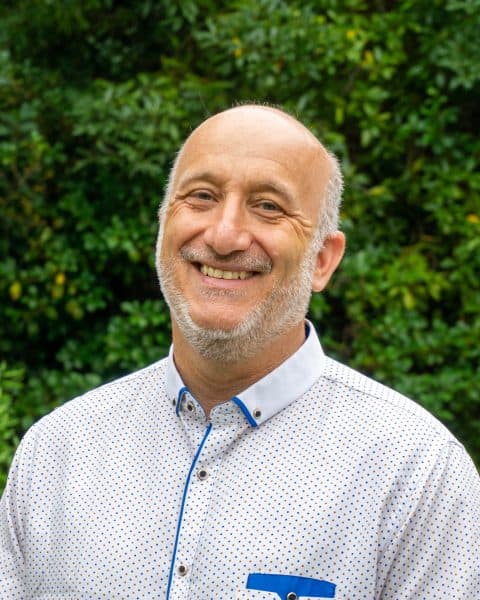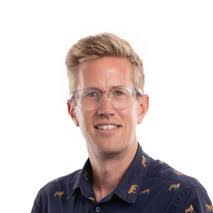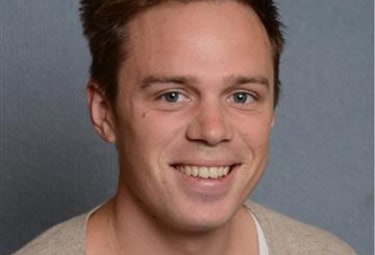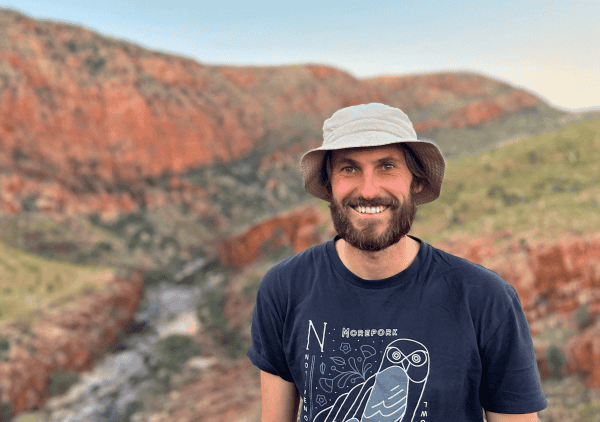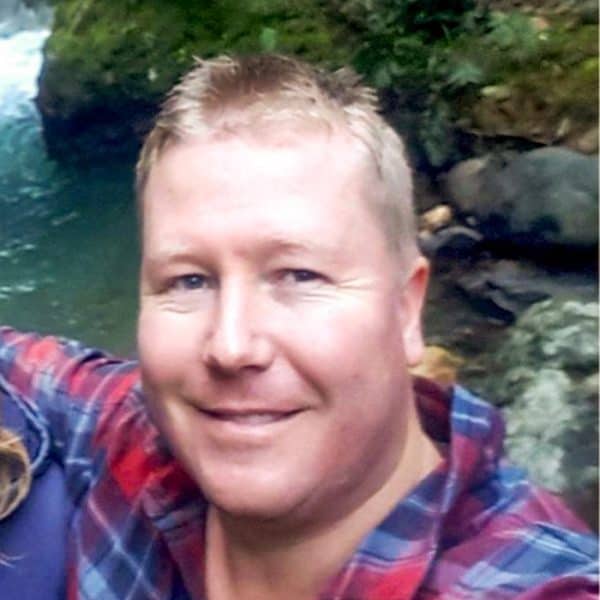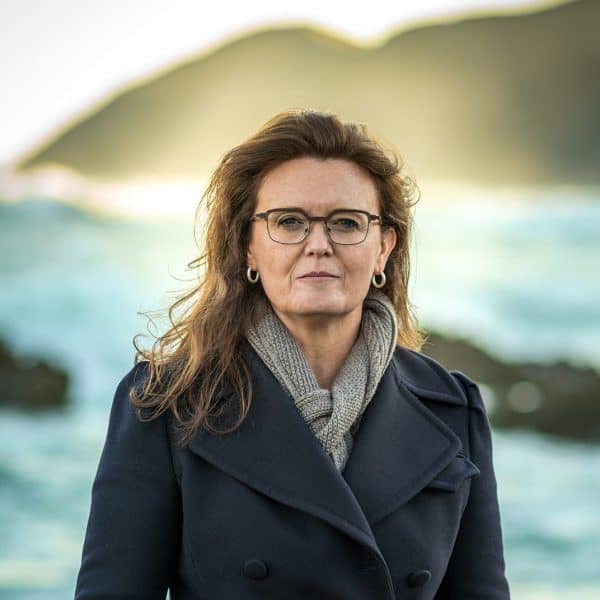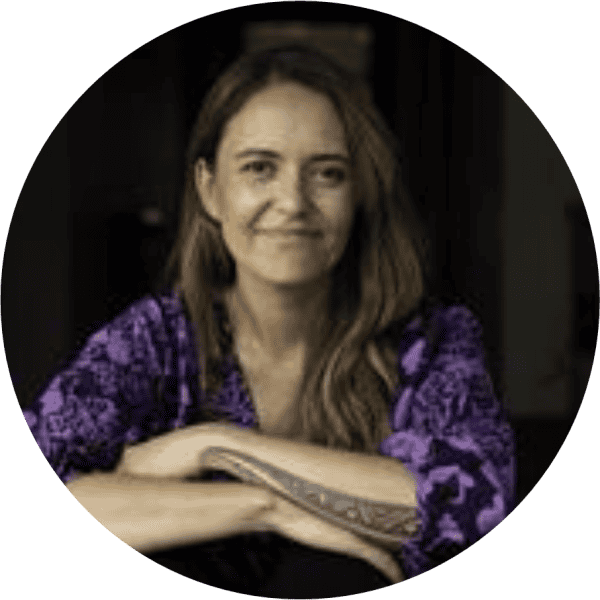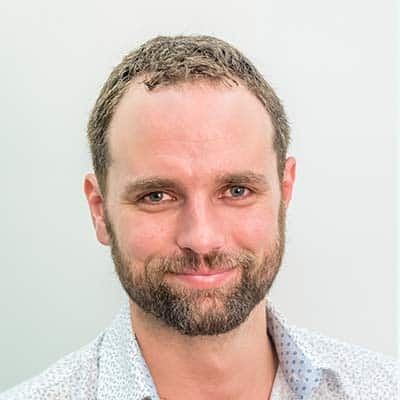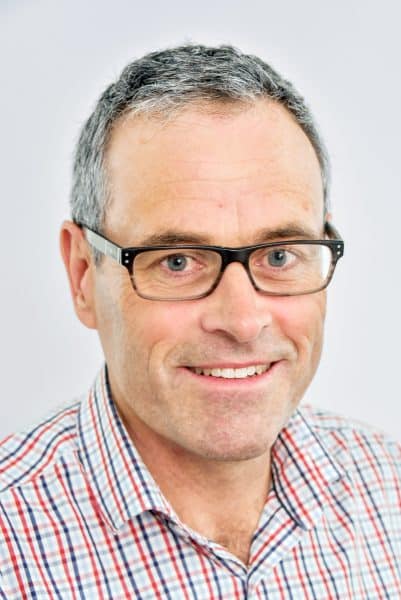Join us for an insightful webinar where researchers from the Extreme Weather Research Platform (EWRP) will present their key findings. In response to the extreme weather events in North Island, the Ministry of Business, Innovation and Employment (MBIE) allocated $10.8 million in February 2023 for urgent scientific research and data collection. The funding was distributed across several different projects.
Featuring presenters from a range of EWRP projects, this webinar will provide a detailed overview of key outcomes and data outputs across the EWRP. Topics will include landslide mapping, the Emergency Event Data Catalogue, strategies for supporting critical infrastructure recovery, ecological impacts, the effects of extreme weather on rangatahi and whānau wellbeing, LiDAR, remote sensing, flood mapping, and risk modelling.
